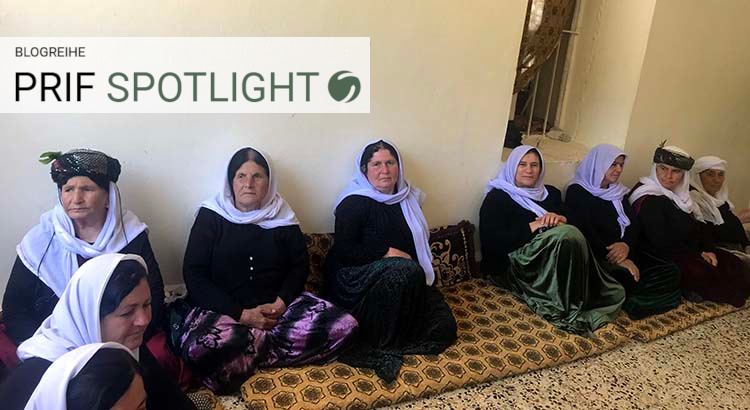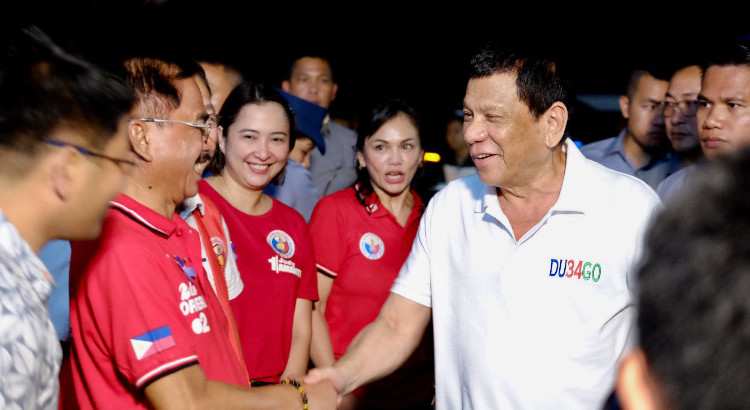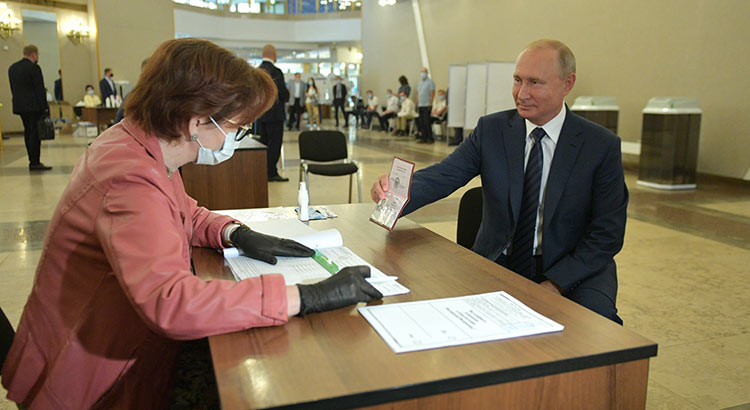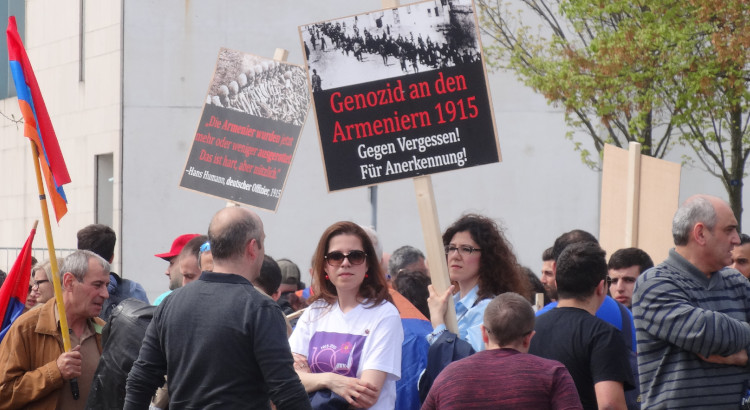In 1993, Russia literally had to fight to adopt its new constitution. In October that year, the then president Boris Yeltsin ordered tanks to shell the White House in Moscow (seat of then Supreme Soviet, now of the Russian government), where plotters were hoping to restore the Soviet Union and roll back democratic reforms. In 2020, no show of force was required to amend the constitution (if we are to ignore the military parade on the Red Square on the eve of the seven-day-long referendum), and yet the consequences of this move for both Russia and its neighbours might be even more drastic than those 30 years ago.
Kategorie: English
A New Wave of Right-Wing Terrorism
Right-wing terrorism is a growing threat for democratic societies globally. With rising numbers in death tolls and far-right narratives creeping into the mainstream, the extreme right assumed a new face through the digital dissemination of extremist propaganda and trivialising violence – thereby attracting new audiences. Greater cooperation is required between the state, researchers, and tech companies to address the manipulative strategies used by these groups.
Social Media as a Mirror of External Circumstances: Insights into the Perception of a Radical Group
Radicalisation processes take place in a field of tension between the actor and the outside world. External reactions and circumstances can have a supportive but also a rather negative and escalating effect on the dynamics of group development, depending on how they are perceived. Radical groups often react to circumstances in the outside world, incorporate them into their own discourse and provide their followers with a processed interpretation of them. This can be observed particularly well on social media. Within the scope of a thematic content analysis, we analysed how external circumstances were received within the community and what influence they had on the dynamics of the group Millatu Ibrahim.
The Great Divide? The Online-Offline Nexus and Insights from Research on the Far-Right in Germany
Research financed in the framework of the BMBF’s public security programme is still predominantly occupied with two issues: “online-radicalization” and “international terrorism”. The emphasis on „international terrorism“ still leads to an exclusive focus on “Islamist terrorism” and completely ignores the discussion of and a stronger need for research on right-wing terrorism. The emphasis on “online-radicalization” on the other hand misses the importance of also looking at the offline dimension of any phenomena under investigation.
Early Warning? Opportunities and Limitations of Automated Internet Monitoring
Policymakers have invested considerable effort and research funding to understand the role of the Internet in radicalisation processes and attack planning. This includes approaches to identify radicalisation or “weak signals” for terrorist intentions in online behaviour. As a result, security authorities have become increasingly interested in approaches to computer science including Artificial Intelligence. Nevertheless, what results have research efforts thus far yielded? Can computer science prove useful? And what are the possibilities and limitations of automated tools?

Endangered Future: Yezidis in Post-Genocide Iraq and the Need for International Support
As the international memory of ISIS’ genocide against the Yezidi population of Şengal in Northern Iraq recedes, its victims have been left to languish increasingly hopelessly, in refugee camps with little realistic prospect of returning to their homes. Tens of thousands of displaced Yezidis remain dispersed across Northern Iraq, hundreds of kidnapped Yezidi girls and women are unaccounted for and the fates of many of their male relatives unknown. In the short term, there is an urgent need for international protection from further attacks, the recognition of a political status for Şengal and immediate aid for refugee camps to create the conditions for Yezidi genocide survivors to return, resettle and gain a sense of political stability and empowerment.

Duterte, Estrada, Thaksin and the Battle Cry of Populism
The current and former leaders of the Philippines and Thailand, Rodrigo Duterte, Joseph Estrada, and Thaksin Shinawatra and their policies have in varying degrees been described and explained through the distinct lens of populism. I argue that in these East Asian cases, this category does neither fit the leaders nor their policies. To members of the domestic establishment elites and upper middle class intellectuals it rather serves as a political weapon to fend off political alternatives that threaten to sideline them.
Is the Work Done? Views from Armenians in Germany on the Recognition of the Armenian Genocide
All around the globe the Armenian Diaspora has been campaigning in their respective countries to recognise the massacres of 1.5 million Armenians in the Ottoman Empire in 1915 as genocide. This year marks the 105th anniversary of the Armenian Genocide but the successor state of the perpetrator – Turkey – continues labelling it as “so-called“ genocide. After many years of hesitation, Germany became the 25th country to officially adopt a resolution to recognise the Armenian Genocide in 2016. How has this step impacted the perspectives of the Armenian community in Germany?
Salafist Groups’ Use of Social Media and its Implications for Prevention
Researchers largely agree that radicalisation processes mostly include both real-world and virtual conditions. However, the interaction of both spheres has so far been understudied. Still, too little is known about how the two environments are mutually dependent and, accordingly, even less about how prevention and deradicalisation approaches can cover both spheres. In the previous article, Manjana Sold highlighted that while studying social media profiles, linkages to the real world are observable. This blog argues that this also occurs the other way around: Based on results from in-depth case studies, the article shows how radical Salafist groups in Germany use the benefits of social media to attract new members and facilitate the maintenance of the group. From these findings, possible starting points for prevention and deradicalisation work will be derived, which, if possible, cover both spheres of life.
The Amalgamation of Virtuality and Reality in Radicalisation Processes
Virtuality has long since become an integral part of the world we live in today. It is thus not surprising that the virtual world is also used by those already radicalised and those who are in the midst of a radicalisation process. Accordingly, recent years have seen an increase in research that is particularly interested in the online component of radicalisation processes. Although the majority of researchers agree that there is no pure online radicalisation and that real-world contacts are always an important part of the process, research often continues to be one-sided. This posts calls for a change of focus by considering both spheres as equal components to the process and by examining their interactions. Findings from online case studies stemming from social media profiles of Salafist and right-wing individuals illustrate the amalgamation of online and offline radicalisation.








